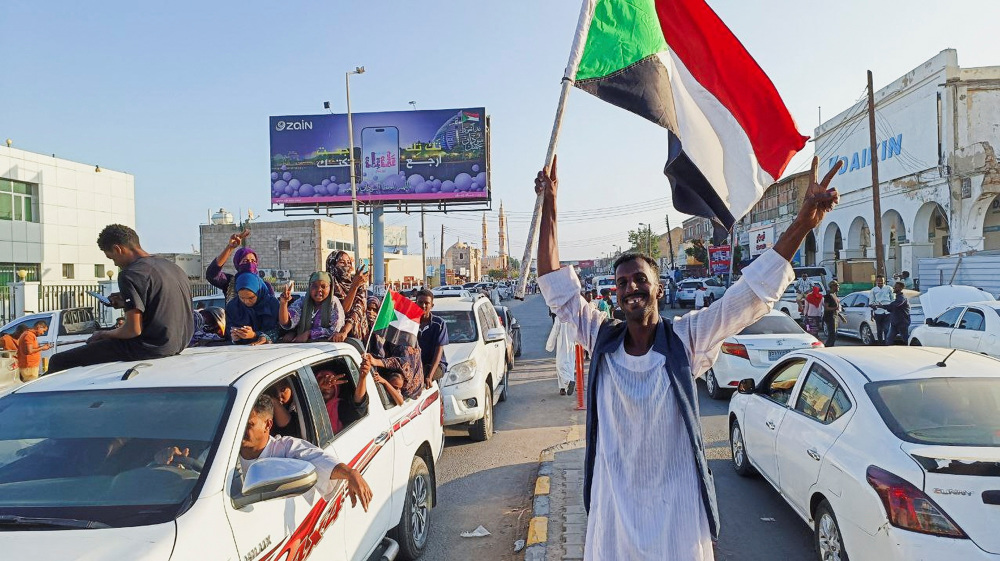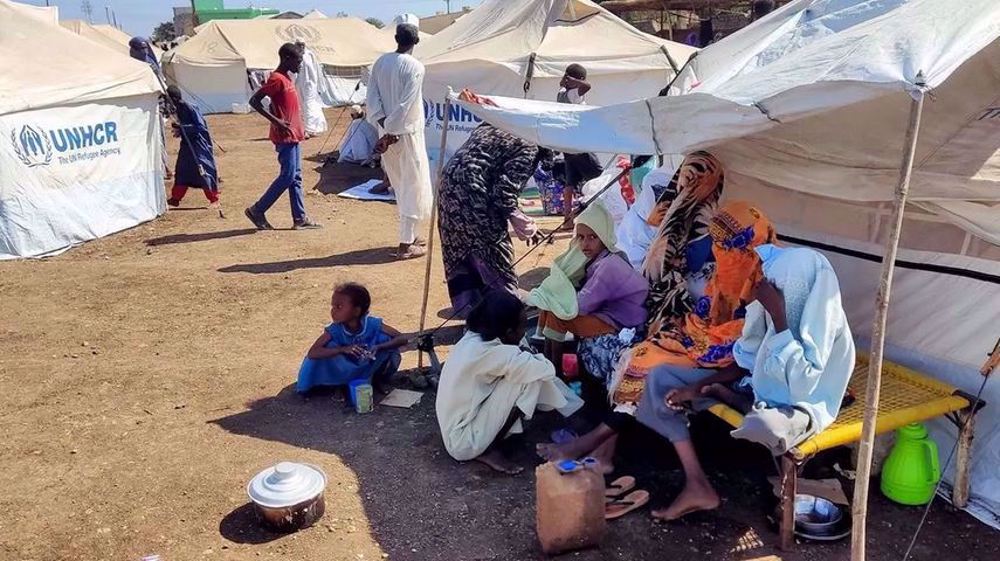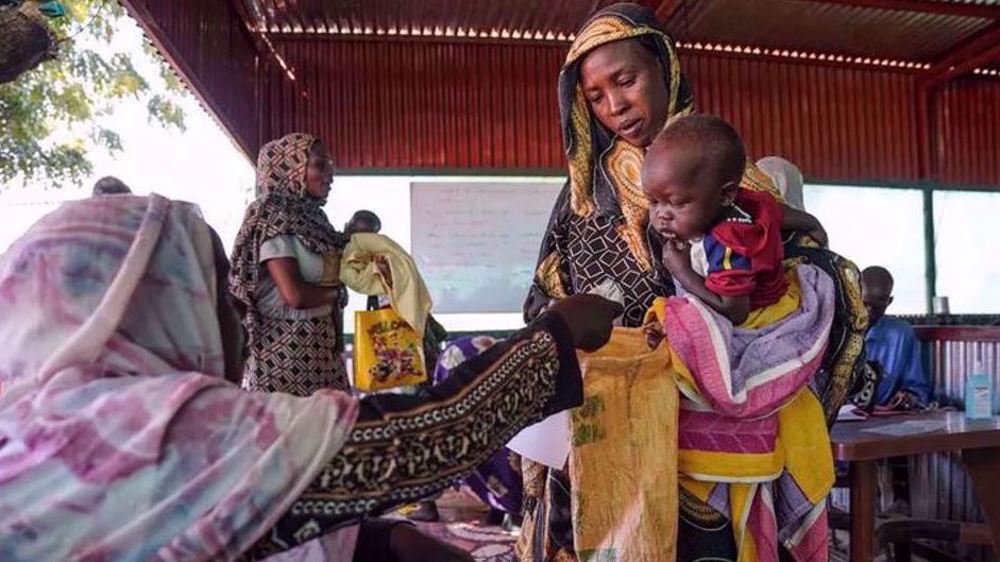South Sudan unity government takes oath of office
South Sudan has formed a transitional unity government with 30 ministers sworn in, bringing an end a two-year deadly conflict in the country.
The ministerial portfolios were divided between President Salva Kiir, former rebel leader Riek Machar and other parties, consistent with an August 2015 peace deal. Machar was sworn in as first vice president shortly after returning to the capital on Tuesday.
"We are going to work together," Kiir said after the ministers took the oaths of office on Friday. "We must learn how to forgive and we must learn how to apologize."
Thousands of people have been killed and more than two million forced to flee their homes because of clashes between rival factions. Machar fled Juba at the start of the civil war in December 2013.
"Cooperation is important," Machar told the new ministers, calling on the leaders to show fearful people that the peace deal would succeed.
"If we act as groups in the cabinet, we will fail the people of South Sudan."
United Nations Secretary General Ban Ki-moon welcomed the move as an "important milestone" in the peace process, and called on the parties "to cease immediately all hostilities".
The Juba cabinet is scheduled to remain in place till October 2018.
Kiir holds the important ministerial portfolios with Kuol Manyang remaining as minister of defense and David Deng Athorbei as finance minsiter.
Meanwhile, Machar appointed Dak Duop Bichok as minister of petroleum.
The "former detainees", a group of important politicians jailed at the eruption of fighting, appointed Deng Alor to represent them. Alor was handed the foreign ministry that he had held before South Sudan’s independence in 2011.
Lam Akol, opposition leader and outspoken government critic, was named as the minister for agriculture and food security.
Charge or release political detainees
On Friday, Amnesty International called on Juba to release or charge 33 prisoners, saying the recent release of Joseph Bakosoro, former governor of Western Equatoria state, and Professor Leonzio Angole Onek from Juba University was "a mere fraction of people being detained by NSS and other security forces such as the military".
Bakosoro and Onek, who were detained in December 2015 by the National Security Service (NSS), were freed this week.
Amnesty noted that some of the prisoners "have been beaten, especially during interrogation or as a form of punishment."
The treatment of detainees may "amount to torture", the watchdog added.
The bloody civil war in South Sudan, the youngest country in Africa, began in December 2013 when Kiir accused his former deputy Machar of plotting a coup against him.
The two sides then became involved in a cycle of retaliatory killings that split the impoverished country along ethnic lines.
Despite the August 2015 peace deal, battles persist across the country. There are numerous militia forces that do not abide by peace agreements and are driven by local agendas.
In January, UN rights monitors offered details about a long list of horrific abuses in the destructive war.
A joint report by the UN peacekeeping mission, UNMISS, and the UN High Commissioner for Human Rights (OHCHR) cited “gross violations” of human rights, including “gang-rape, sexual slavery and forced abortion,” by the warring sides.
IRGC chief commends Iranian medical staff for treating Lebanon's pager attack victims
Iran, Pakistan boosting all-out military cooperation: Top general
Timeline: Key events that shaped 470 days of Israeli genocidal war on Gaza
First aid trucks enter Gaza as ceasefire begins
Hamas says committed to Gaza ceasefire deal; awaits list of prisoners to be released by Israel
VIDEO | Press TV's News Headlines
Israeli minister Ben-Gvir quits Netanyahu’s coalition over Gaza ceasefire
Hamas names 3 Israeli captives to be freed under Gaza ceasefire deal















 This makes it easy to access the Press TV website
This makes it easy to access the Press TV website